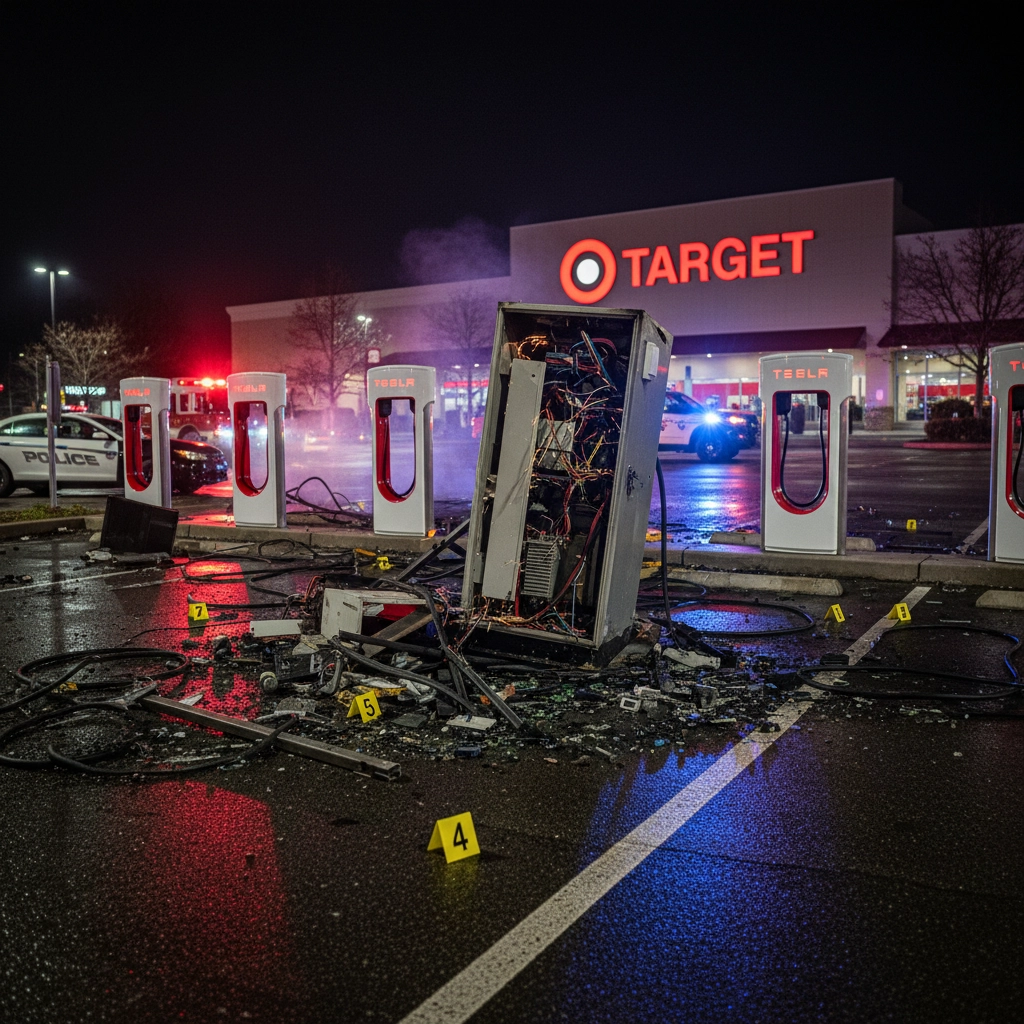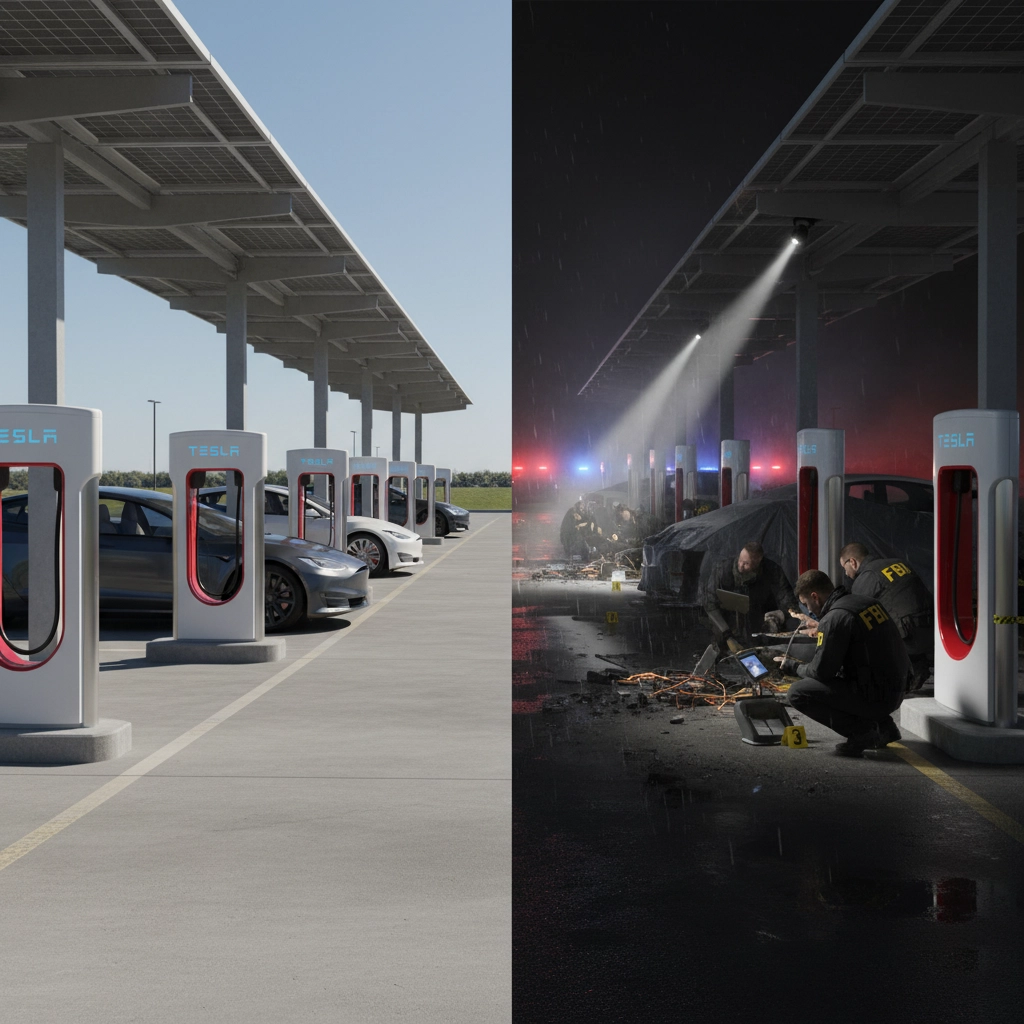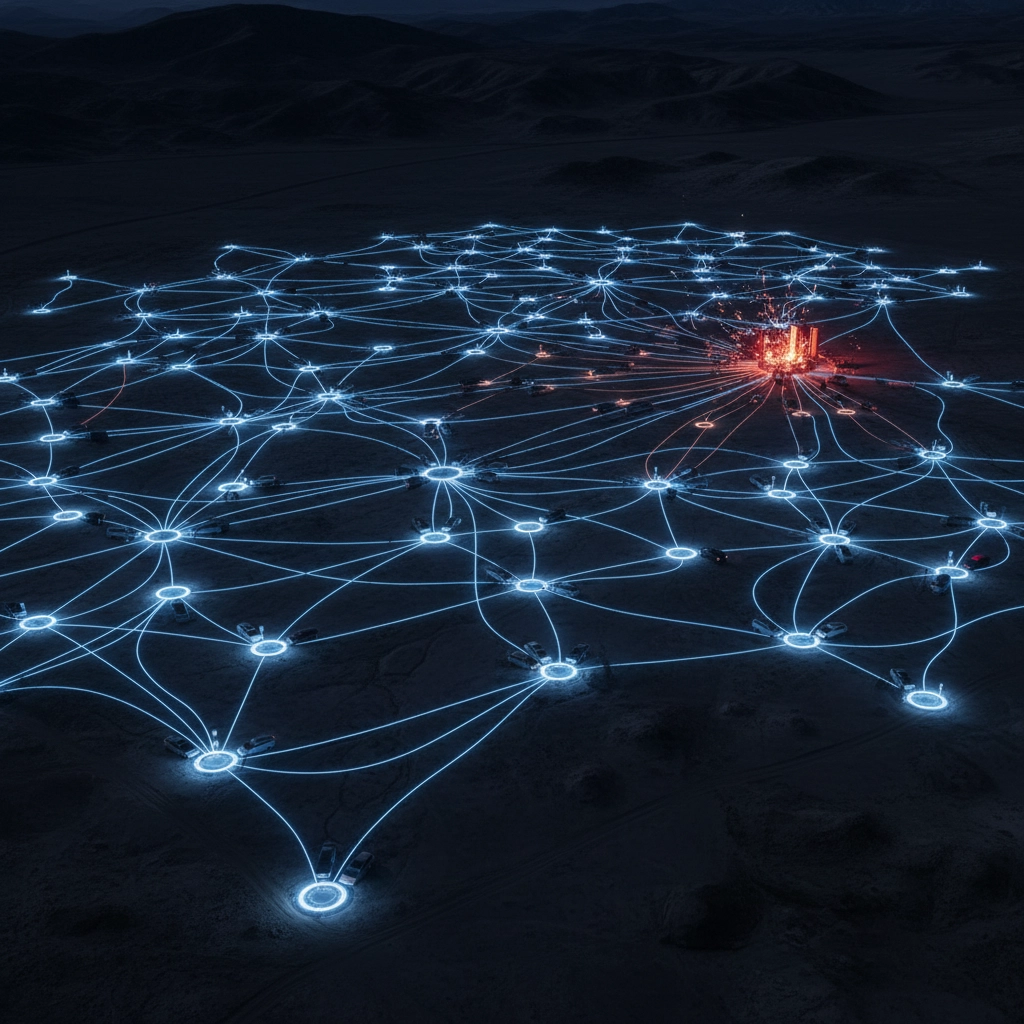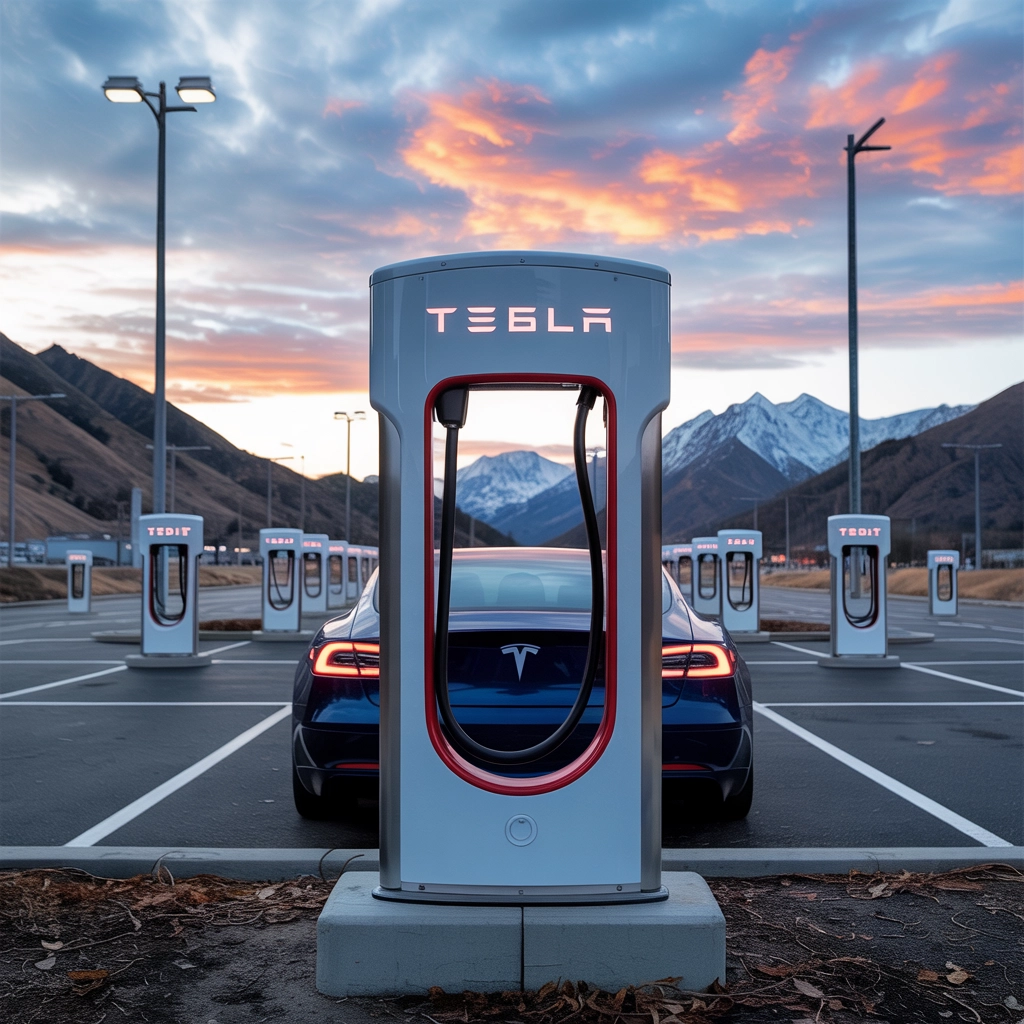You know that sinking feeling when you're road-tripping and your car's battery hits 15%? Now imagine pulling up to a Supercharger station only to find it's been blown to smithereens by what the FBI is calling an act of domestic terrorism.
That's exactly what happened in Lacey, Washington, on April 8th when a Tesla Supercharger station got completely destroyed in an explosion that has federal investigators scrambling for answers. But this isn't just another case of vandalism gone wrong – it's sparking serious conversations about infrastructure security, EV adoption, and what happens when political tensions meet critical technology.
What Actually Happened in Lacey
At 1:30 AM on a quiet Tuesday morning, 12 Tesla Supercharger stalls at 665 Sleater Kinney Road Southeast went from fully operational to a scattered pile of metal and electronics. The damage was so extensive that photos from the scene show one of the main power cabinets completely obliterated, with debris scattered across the Target parking lot where the charging station was located.

The FBI didn't waste time getting involved. Special Agent in Charge Mike Herrington held a press conference announcing they're "treating this as if it's presumptively domestic terrorism." That's FBI-speak for "someone wanted to send a message, and we're taking it seriously."
Surveillance footage caught the suspect – described as a white male between 5'10" and 6'2", wearing dark clothes and carrying a white plastic bag. The footage shows him approaching the charging station just before the explosion, but investigators haven't released more specific details about what kind of device was used or how it was detonated.
Tesla's response was swift and direct. They posted on X: "Don't mess with critical infrastructure" while coordinating with local police and reviewing camera footage. The entire station was shut down while Tesla worked with Puget Sound Energy to assess the damage and plan repairs.
Why the FBI Is Calling This Domestic Terrorism
Here's where things get really interesting. The FBI has created a dedicated task force specifically to investigate vandalism against Tesla properties. Not just this incident – but a pattern of attacks that's been building for months.
FBI Director Kash Patel labeled violence against Tesla as domestic terrorism, and when you look at the broader picture, it's not hard to see why:
• Multiple Tesla showrooms have been vandalized across the country
• Individual Tesla vehicles have been targeted with spray paint and property damage
• Charging stations have been sabotaged in various locations
• Some incidents have involved actual arson attempts on Tesla vehicles
The federal response goes way beyond what you'd typically see for property damage cases. When the FBI creates a joint task force with the ATF (Bureau of Alcohol, Tobacco, Firearms and Explosives), they're sending a clear message that attacking infrastructure isn't just vandalism – it's potentially an attack on the country's transition to sustainable transportation.

What's particularly concerning to investigators is the escalation factor. Agent Herrington specifically mentioned fears that "somebody could be injured or even killed in one of these incidents." When you're dealing with high-voltage charging equipment and explosive devices, the margin for error disappears quickly.
What This Means for Tesla and EV Infrastructure
Let's be real for a second. I've been driving EVs for three years, and range anxiety is already a thing. You plan your trips around charging stations, especially on longer drives. The idea that someone might blow up the charging station you're counting on? That's a whole new level of anxiety that could seriously impact EV adoption.
Tesla operates over 50,000 Supercharger stations globally, and they're increasingly opening these networks to other EV manufacturers. This infrastructure isn't just about Tesla anymore – it's becoming the backbone of America's electric vehicle future. Attack one station, and you're potentially stranding dozens of drivers who were counting on that specific location.
The security implications are massive. Unlike gas stations, which can be quickly repaired or have fuel delivered by truck, charging stations require complex electrical infrastructure, permits, and coordination with utility companies. A single successful attack can take a charging location offline for weeks or months.

Insurance companies are already taking notice. Some reports suggest that Tesla charging stations in certain areas might face higher insurance premiums due to vandalism risks. That cost ultimately gets passed along to users, potentially making EV charging more expensive and less attractive to potential adopters.
The Bigger Picture: Politics Meets Technology
While specific Reddit discussions about this incident weren't captured in available reports, the broader tech community conversation is predictable and concerning. The r/Technology subreddit regularly sees heated debates about Elon Musk, Tesla's business practices, and the politicization of electric vehicles.
What makes this situation particularly volatile is how Tesla has become a symbol that goes far beyond just being a car company. Some people see Tesla as representing innovation and environmental progress. Others view it as representing tech billionaire excess or political positions they disagree with. When products become political symbols, they become targets.
The domestic terrorism classification suggests federal investigators see this as more than just anti-corporate sentiment. They're looking at patterns that indicate organized efforts to disrupt critical infrastructure, which crosses the line from protest into something much more serious.
This creates a dangerous precedent. If charging infrastructure becomes a regular target for politically motivated attacks, it could significantly slow down the country's transition away from fossil fuels. Every destroyed charging station represents not just property damage, but a potential delay in addressing climate change through transportation electrification.
The Lacey explosion isn't just about one charging station or even one company. It's about whether critical infrastructure can remain secure in an increasingly polarized environment. When the FBI creates dedicated task forces to investigate attacks on charging stations, we're clearly in uncharted territory.
The question isn't whether more attacks will happen – federal investigators seem convinced they will. The question is whether the tech community, law enforcement, and infrastructure companies can work together to prevent escalation before someone gets seriously hurt.
What do you think it'll take to keep our charging infrastructure safe while still allowing space for legitimate criticism and protest?







